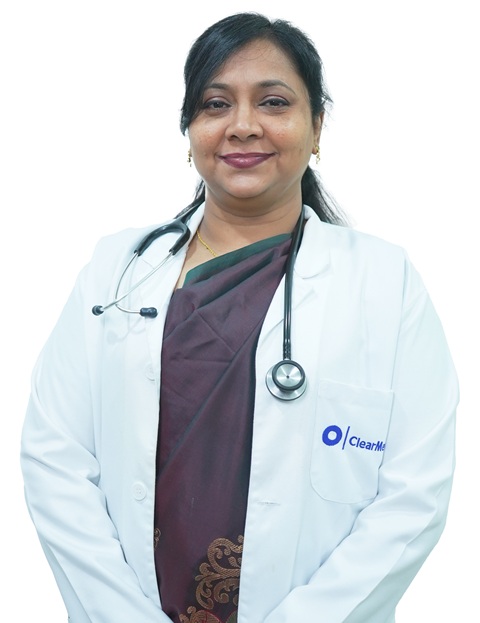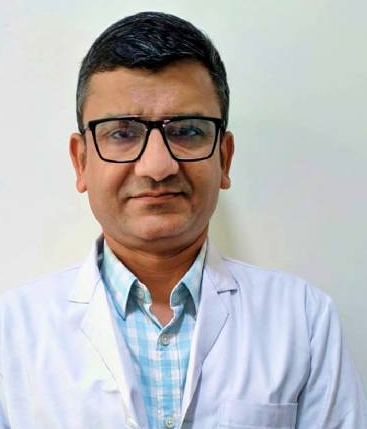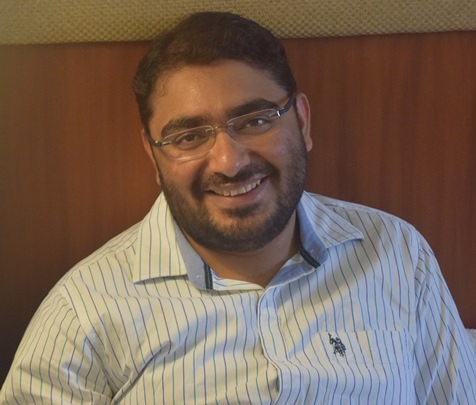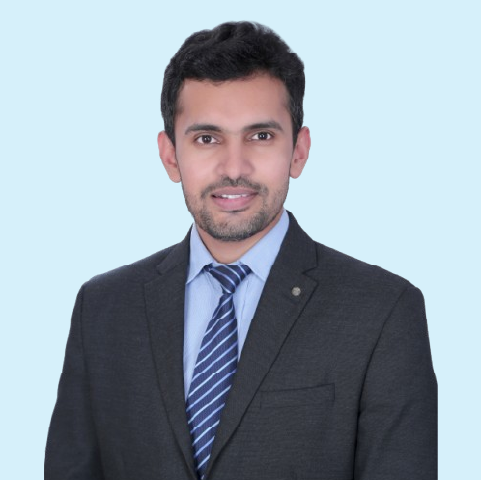12 Ayurvedic Treatment for Hair Loss and Re-Growth

Quick Summary
- Ayurveda is a holistic approach to hair loss that addresses the underlying causes of the problem.
- Ayurvedic treatment for hair fall is natural and has no adverse effects on the body.
- By adopting the natural remedies and holistic approach of Ayurveda, individuals can restore the health and vitality of their hair.
Table of Contents
- Understanding Ayurveda
- Ayurvedic Hair Care Basics
- Benefits of Ayurvedic Remedies for Hair Loss
- Ayurvedic Remedies for Hair Loss
- Ayurvedic Therapies for Hair Fall
- Tips to Remember - Ayurvedic Treatment for Hair Fall
- Lifestyle Changes
- Role of Diet in Ayurvedic Treatment for Hair Loss
- When to See a Doctor?
- Takeaway
- Frequently Asked Questions
- References
Hair loss is a common problem faced by numerous men and women alike. While many suffer from the issue on a daily basis, Ayurvedic treatment for hair loss can come to their rescue. It is a comprehensive approach that aims to regain balance and harmony in the body, mind, and spirit.
Moreover, Ayurvedic treatment for hair fall addresses the underlying causes of hair loss and promotes hair growth naturally. It has no adverse effects on the body and can be suitable for all age groups.
By adopting the natural remedies and holistic approach of Ayurveda, individuals can restore the health and vitality of their hair without resorting to harsh chemicals or expensive procedures. Keep reading to learn about Ayurveda for hair loss.
Understanding Ayurveda
Ayurveda is a holistic healing system that originated in ancient India over 5,000 years ago. It is based on the belief that the mind, body, and spirit are interconnected and maintaining a balance between these elements is essential for overall well-being.
Ayurveda encompasses a wide range of practices, including herbal medicine, dietary guidelines, meditation, yoga, and lifestyle recommendations.
It emphasises personalised treatments that take into account an individual's unique constitution or "dosha" to promote optimal health and prevent disease. Ayurveda continues to be widely practised and respected as a comprehensive system of natural healing.


Ayurvedic Hair Care Basics
Ayurvedic treatment for hair regrowth promotes healthy hair growth that considers various factors, including the mind, emotions, nutrition, hair oiling and washing, scalp massage, and herbal treatments. Since each person's unique doshas, developing a personalised hair care regimen is crucial for encouraging hair growth:
One of the fundamental aspects of Ayurvedic hair care is maintaining a healthy mind and balanced emotions. Anxiety and stress may cause hair loss; thus, adding relaxation practices into one's daily routine, such as yoga and meditation, might be useful.
In Ayurveda, for hair loss, an optimal diet is also vital for stimulating hair development. A well-balanced diet high in minerals, vitamins, and proteins can supply the nutrients for healthy hair.
Hair oiling and washing are other vital aspects of Ayurvedic hair care. Regular oiling with nourishing oils like coconut, sesame, or olive oil can strengthen hair roots, prevent breakage, and improve overall hair health. Washing hair with gentle, natural shampoos and avoiding harsh chemicals can promote healthy hair growth.
Scalp massage is an integral part of Ayurvedic hair care, as it stimulates blood flow to the scalp and nourishes hair follicles. In addition, massaging the scalp with warm oil can also help increase circulation and promote hair growth.
Herbal treatments, such as amla, shikakai, and Brahmi, are also commonly used in Ayurvedic hair care. These herbs can help cleanse, nourish, and strengthen hair and may be used in various forms, such as powders, pastes, or infused oils.
Benefits of Ayurvedic Remedies for Hair Loss
Ayurvedic remedies for hair loss offer several benefits that contribute to overall hair health and promote natural hair growth. Here are some key advantages of incorporating Ayurvedic remedies into your hair care routine:
Natural and Holistic Approach: Ayurvedic remedies focus on treating the root cause of hair loss rather than just addressing the symptoms. They aim to restore balance in the body and promote overall well-being, which in turn supports healthy hair growth.
Nourishment and Strengthening: Ayurvedic ingredients like Bhringraj, Amla, and Sesame seeds are rich in essential vitamins, minerals, and antioxidants. These nutrients provide nourishment to the scalp and hair follicles, strengthening the hair from the root and preventing hair breakage.
Scalp Health: Ayurvedic remedies often target scalp issues such as dandruff, itching, and inflammation. Ingredients like Neem possess antimicrobial and anti-inflammatory properties that help maintain a healthy scalp environment. A healthy scalp is crucial for promoting optimal hair growth.
Stress Reduction: Stress is a significant contributing factor to hair loss. Ayurvedic remedies such as Brahmi and Ashwagandha have adaptogenic properties that help the body manage stress and promote mental well-being. By reducing stress levels, these remedies indirectly contribute to healthier hair.
Improved Blood Circulation: Many Ayurvedic remedies include scalp massages using herbal oils. These massages help improve blood circulation to the scalp, ensuring that the hair follicles receive an adequate supply of nutrients and oxygen. Enhanced blood flow can stimulate hair growth and rejuvenate dormant hair follicles.
Hair Colour Maintenance: Ayurvedic ingredients like Amla are known for their ability to slow down premature greying of hair. Regular use of Amla or Amla oil can help maintain the natural colour of the hair and delay the onset of grey hair.
Gentle and Safe: Ayurvedic remedies generally use natural ingredients, making them a gentle and safe option for hair care. They are less likely to cause adverse side effects or damage the hair and scalp compared to chemical-laden products.
Ayurvedic Remedies for Hair Loss
Ayurvedic remedies for hair loss include various therapies and treatments that nourish and strengthen hair follicles, improve blood circulation to the scalp, and balance the doshas. There are various treatments available in Ayurvedic hospitals.
Explore the best ayurvedic solution for hair fall that can help people combat the issue:
Bhringraj: Bhringraj, also known as Eclipta Prostrata, is a highly regarded herb in Ayurveda for promoting hair growth.
It helps strengthen hair follicles and prevents premature greying.
Bhringraj oil, made by infusing Bhringraj leaves in a carrier oil like coconut oil, is commonly used to massage the scalp to stimulate hair growth and nourish the hair.
Amla: Amla, or Indian gooseberry, is rich in vitamin C, antioxidants, and minerals.
It strengthens the hair follicles, prevents hair breakage, and nourishes the scalp.
Amla oil can be applied to the scalp or consumed internally as a supplement to promote hair health.
Neem: Neem, scientifically known as Azadirachta Indica, has antifungal and antibacterial properties that help maintain a healthy scalp.
It helps control dandruff, itching, and inflammation, which can contribute to hair loss.
Neem oil or neem leaves can be used in hair masks or shampoos to address scalp issues and support hair growth.
Brahmi: Brahmi, also known as Bacopa Monnieri, is a herb renowned for its ability to calm the mind and promote mental well-being.
Stress is a common cause of hair loss, and Brahmi helps reduce stress levels, thus indirectly benefiting hair health.
It can be consumed orally or used as an oil for scalp massages.
Ashwagandha: Ashwagandha, or Withania Somnifera, is an adaptogenic herb that helps the body cope with stress.
Reducing stress levels indirectly prevents hair loss caused by stress-induced factors.
Ashwagandha can be taken in the form of capsules or as a powder mixed with warm milk.
Eatable Sesame Seeds: Sesame seeds are nutrient-rich and contain essential minerals such as magnesium, calcium, and iron.
Consuming sesame seeds regularly, either by sprinkling them on salads or including them in smoothies, can provide nourishment for the hair.
Ritha: Also known as soap nuts or Boondi Kottai. This herb has several benefits for hair, skin and dandruff.
It is an excellent hair promoter that strengthens hair follicles to clean and prevent hair loss.
You can use it by adding in the hair oil or using its powder while washing your hair.
Aloe Vera: Aloe vera is a plant with various benefits. It is also used for improving hair quality.
You can drink aloe vera juice 2-3 times a day for 3 months for better hair and overall well-being.
Tulsi: Tulsi, or holy basil, is revered in Ayurveda for its numerous health benefits.
When used for hair care, Tulsi strengthens the hair follicles, nourishes the scalp, and reduces hair fall.
Incorporating Tulsi oil or powder into your hair care routine can help promote thicker and healthier hair.
Hibiscus: Hibiscus is known for its natural conditioning properties and its ability to stimulate hair growth.
Applying a hibiscus hair mask or rinsing your hair with hibiscus-infused water can help strengthen the hair follicles, control hair fall, and promote shiny and lustrous hair.
Green Tea: Green tea is rich in antioxidants and has been found to have numerous health benefits, including promoting hair growth.
Consuming green tea or applying green tea-infused rinses to the hair can help prevent hair loss and stimulate hair follicles for healthier and thicker hair.
Rose Petals: Rose petals are not only fragrant but also beneficial for hair health.
They contain vitamins and antioxidants that nourish the hair follicles, promote hair growth, and add a natural shine to the hair.
Using rose petal-infused water as a final rinse after shampooing can help improve the overall health and appearance of your hair.
Incorporating a dedicated Ayurvedic treatment for hair loss and regrowth into your hair care routine can provide a holistic approach to addressing hair loss and promoting the growth of strong, luscious locks.
Ayurvedic Therapies for Hair Fall
Ayurveda offers a range of effective therapies for addressing hair fall and promoting hair growth. These time-tested therapies focus on restoring balance within the body, nurturing the hair follicles, and optimising scalp health. Here are some commonly used Ayurvedic therapies:
Nasya: Nasya is a powerful Ayurvedic technique that involves instilling medicated oil or herbal preparations into the nasal passages. This practice not only promotes hair growth but also relieves various ailments that can contribute to hair loss, such as sinus congestion and stress.
Shiro Abhyanga: Shiro Abhyanga is a soothing head massage technique using nourishing oils like coconut and sesame seeds. This therapy nourishes the roots and scalp, improves blood circulation, and prevents premature greying of hair. Regular Shiro Abhyanga can also help alleviate stress and promote relaxation, contributing to healthier hair growth.
Shirodhara: Shirodhara is a therapeutic technique in which warm oils, such as coconut or sesame seed oil, are gently poured onto the forehead and scalp. This process promotes relaxation, improves blood circulation to the scalp, and nourishes the hair follicles, leading to healthier and stronger hair.
Panchakarma: Panchakarma is a detoxification and rejuvenation therapy that aims to cleanse the body and restore its balance. Specific treatments like Virechana (purgation) and Basti (medicated enema) may be recommended based on individual needs to address the underlying causes of hair fall.
Shirobasti: Shirobasti is a therapeutic treatment where a cap-like structure is placed on the head and filled with warm Ayurvedic oils. The oils are kept on the scalp for a specific duration, allowing the nourishing properties to penetrate deeply. Shirobasti helps strengthen hair follicles, reducing hair fall, and promoting hair growth.
Tips to Remember - Ayurvedic Treatment for Hair Fall
When using Ayurvedic treatment for hair fall, it's important to keep certain tips in mind to ensure maximum effectiveness and safety. Here are some key tips to remember:
Consult an Ayurvedic Practitioner: Consult a qualified Ayurvedic practitioner before beginning any Ayurvedic treatment for hair loss. They can evaluate your hair's health, pinpoint the root reasons for hair loss, and offer tailored treatment advice.
Patience is Key: Ayurvedic therapies take time to work and must be used consistently. It's crucial to have patience and recognise that it can take a few weeks or months to see any real changes. Trying too many different treatments at once could prevent the desired result.
Follow the Recommended Dosage: Ayurvedic medicines frequently include detailed dose directions. To guarantee safe and efficient use, it's essential to adhere to these instructions strictly. Avoid taking more than is advised because it may have negative effects.
Maintain a Healthy Lifestyle: Ayurveda emphasises the connection between health and hair well-being. Follow a balanced diet, exercise regularly, sleep well, and manage stress. A healthy lifestyle helps in supporting the effectiveness of Ayurvedic treatments for hair fall.
Be Consistent with Application: Apply herbal pastes or Ayurvedic hair oils as suggested on a regular basis. To increase blood flow and encourage the absorption of the herbal elements, gently massage the scalp. The treatment's nourishing and reinforcing properties are enhanced by regular use.
Watch for Allergic Reactions: Although Ayurvedic medicines are typically regarded as safe, some people may react negatively to certain plants or substances. If you suffer any strange symptoms, such as swelling, redness, or itching, stop using the product and seek medical advice.
Monitor Hair Progress: While receiving Ayurvedic treatment, keep note of your hair's development. Keep track of how your hair's density, texture, and quality change over time. Consult an Ayurvedic practitioner for advice if you experience any strange symptoms or symptoms that are getting worse.
Lifestyle Changes
Knowing the lifestyle changes accompanying Ayurvedic hair regrowth treatment is vital for holistic and effective results. These changes, including a balanced diet, stress management, regular exercise, gentle hair care, and adequate sleep, work in synergy with Ayurvedic remedies to promote healthy hair growth and address the underlying causes of hair loss.
Balanced Diet: Adopt a nutritious and balanced diet rich in fruits, vegetables, whole grains, lean proteins, and healthy fats. Avoid processed foods, excessive sugar, and unhealthy fats, which can negatively impact hair health.
Hydration: Drink adequate water daily to keep your body and hair hydrated. Water helps maintain scalp health and promotes hair growth.
Stress Management: Chronic stress can contribute to hair loss. Incorporate stress management techniques like meditation, yoga, deep breathing exercises, and engaging in hobbies to reduce stress levels.
Regular Exercise: Engage in regular physical activity to improve blood circulation, promote overall well-being, and stimulate hair follicles. Choose activities you enjoy and make exercise a part of your daily routine.
Adequate Sleep: Get sufficient sleep to support healthy hair growth. Aim for 7 to 8 hours of quality sleep each night to allow your body to repair and regenerate.
Protect Your Hair: Shield your hair from environmental factors like excessive sun exposure, pollution, and harsh weather conditions. Wear a hat or wear a scarf when exposed to intense sunlight or harsh winds.
Avoid Smoking and Alcohol: Smoking and excessive alcohol consumption can adversely affect hair health. Quit smoking and moderate your alcohol intake for improved overall health and hair growth.
Avoid Hot Water and Harsh Chemicals: Avoid using hot water When washing your hair, as it can strip away natural oils and dry your scalp. Opt for lukewarm or cool water instead. Additionally, avoid harsh chemical-based shampoos, conditioners, and styling products that can damage your hair. Look for natural and Ayurvedic alternatives.
Role of Diet in Ayurvedic Treatment for Hair Loss
In Ayurveda, hair loss is seen as a symptom of an imbalance in the body. Diet is essential to restoring balance and promoting hair growth in such a case.
Here are some key points about the role of diet in Ayurvedic treatment for hair loss:
A balanced diet that supports the body's natural doshas and promotes digestion is key to preventing hair loss and promoting hair growth.
Nutrients such as protein, iron, zinc, and vitamins B and C are important for healthy hair growth, and foods such as leafy green vegetables, legumes, nuts, and seeds are excellent sources of these nutrients.
Foods that promote digestion, such as ginger, turmeric, and cumin, can help improve nutrient absorption and saves the accumulation of toxins in the body, which can contribute to hair loss.
Drinking plenty of water and herbal teas can help the body flush out impurities, which is essential for keeping good hair.
Consuming a dosha-appropriate diet can also help prevent hair loss and promote growth.
For example, individuals with a pitta dosha (having a tenacious personality) may benefit from consuming cooling foods such as cucumber, coconut water, and melons.
In contrast, individuals with a vata dosha (having a dynamic personality) may benefit from consuming warm, grounding foods such as sweet potatoes, lentils, and sesame seeds.
Foods To Eat
A well-balanced diet rich in nutrients stimulates hair development and prevents hair loss. The following foods can be included in an Ayurvedic diet for hair loss:
Protein-Rich Foods such as lentils, beans, nuts, and seeds. Protein is essential for hair growth and can help strengthen hair follicles.
Iron-Rich Foods include leafy greens, beets, and dates. It's important for carrying oxygen to the hair follicles, and a lack of it can result in hair loss.
Citrus Fruits, kiwis, and berries are high in vitamin C. It promotes collagen formation, which is necessary for good hair development.
Pumpkin seeds, sesame seeds, and chickpeas are zinc-rich foods. Zinc is essential for hair growth and the repair of hair tissue.
Omega-3 Fatty Acid-Rich Foods include fatty fish like salmon, flaxseeds, and chia seeds. These help decrease inflammation and increase hair development.
Foods To Avoid
According to Ayurveda, certain foods can increase the doshas and contribute to hair loss. It is highly advised to avoid these foods for optimal hair health:
Spicy and Oily Foods: These can increase pitta dosha, which is associated with hair loss.
Salty Foods: Excessive salt intake can lead to dehydration and dryness, worsening hair loss.
Sour Foods: Sour foods like pickles and vinegar can aggravate pitta dosha and contribute to hair loss.
Fermented Foods: Fermented foods like alcohol and cheese can increase pitta dosha, severely impacting the growth of hair follicles.
When to See a Doctor?
While Ayurvedic treatments can effectively address hair fall, it is important to know when to seek medical advice from a doctor. Here are some situations where consulting a doctor is recommended:
Worsening of hair loss
Unusual symptoms or side effects such as severe scalp irritation, redness, swelling, excessive itching, or any other allergic reactions
Lack of improvement
Concurrent health conditions such as hormonal imbalance, thyroid disorder, etc.
Takeaway
In conclusion, Ayurvedic treatment for hair fall and regrowth offers a natural approach to promoting healthy hair growth. Ayurveda views hair loss as a result of an imbalance in the body and, therefore, emphasises the essentials of addressing the root causes of the problem.
With a focus on diet, lifestyle changes, and personalised hair care regimens, Ayurveda can help individuals restore their hair's health and vitality without harsh chemicals or expensive procedures. So, adopting Ayurvedic principles can be a beneficial step towards achieving healthy and lustrous hair.
Contact HexaHealth and consult our experts to unveil effective treatments that improve your hair loss problem. Reach out today and get started!
Suggested Reads,
Frequently Asked Questions
What is Ayurvedic treatment for hair loss?
Ayurvedic treatment for hair loss involves a holistic approach that focuses on addressing the underlying causes of hair fall. It includes therapies like Shiro Abhyanga (head massage), Shirodhara (oil pouring on the head), herbal hair packs, and dietary and lifestyle modifications tailored to balance the doshas and promote hair growth.
Is ayurvedic treatment for hair fall effective?
Ayurvedic treatment for hair fall has shown effectiveness for many individuals. It takes into account the individual's unique constitution and aims to restore balance in the body, addressing both the physical and emotional aspects of hair loss.
However, results may vary depending on the severity of the condition and adherence to the treatment plan.
What is the role of Ayurveda for hair loss?
Ayurveda plays a significant role in addressing hair loss by identifying imbalances in the doshas that may contribute to hair fall.
It emphasises an effective approach to restoring balance through personalised dietary recommendations, herbal treatments, lifestyle modifications, stress management techniques, and rejuvenating therapies that promote healthy hair growth.
What are the benefits of ayurvedic treatment for hair fall?
The benefits of Ayurvedic solutions for hair fall are multifold. It aims to reduce hair fall and nourish the scalp, strengthens hair follicles, promotes healthy blood circulation to the scalp, and improves overall hair quality and texture. Additionally, Ayurvedic treatments often use natural ingredients that are gentle on the hair and free from harsh chemicals.
How does Ayurvedic treatment for hair loss differ from other treatments?
Ayurvedic treatment for hair loss differs from other treatments in its holistic approach. It considers an individual's unique constitution and addresses the root causes of hair fall rather than merely treating the symptoms.
Ayurveda balances the doshas, promotes overall well-being, and uses natural remedies to support healthy hair growth.
What are some Ayurvedic herbs used for hair loss treatment?
Ayurvedic herbs commonly used for hair loss treatment include Bhringraj, Amla, Brahmi, Neem, and Hibiscus. These herbs are known for their nourishing, strengthening, and rejuvenating properties for the hair and scalp.
They can be used in various forms, such as oils, powders, and herbal hair masks, to promote hair growth, reduce hair fall, and improve hair health.
Can Ayurvedic treatment be used for both male and female hair loss?
Ayurvedic treatment can be used for both male and female hair loss. Ayurveda considers individual differences and tailors treatment plans accordingly to address the underlying causes of hair loss, regardless of gender.
What is the recommended Ayurvedic diet for promoting healthy hair growth?
The recommended Ayurvedic diet for promoting healthy hair growth includes foods nourishing hair follicles and balance doshas.
It typically includes a variety of fresh fruits and vegetables, whole grains, lean proteins, healthy fats like ghee or coconut oil, and specific herbs and spices like amla and turmeric, which are beneficial for hair health.
Can Ayurvedic treatment help with dandruff or scalp inflammation that contribute to hair loss?
Yes, Ayurvedic solutions for hair fall can help with conditions such as dandruff or scalp inflammation that contribute to hair loss.
Ayurvedic herbs, oils, and therapies target these specific scalp conditions, providing relief and supporting a healthy scalp environment for hair growth.
Are there any Ayurvedic oils that are particularly effective for hair loss treatment?
Several Ayurvedic oils are particularly effective for hair loss treatment. Bhringraj oil, Amla oil, Brahmi oil, and Neem oil are commonly used in Ayurveda for their nourishing, strengthening, and hair growth-promoting properties.
These oils can be applied to the scalp and hair regularly to stimulate hair follicles and improve overall hair health.
How long does it take to see results with Ayurvedic treatment for hair loss?
The time it takes to see results with an Ayurvedic solution for hair fall varies depending on individual factors, such as the severity of the condition, adherence to the treatment plan, and overall health.
Consistency and patience are key when undergoing Ayurvedic treatment, as gradual improvements in hair quality and reduction in hair fall can be observed over several weeks to months.
Are there any side effects to using Ayurvedic treatment for hair loss?
When used correctly and under the guidance of a qualified practitioner, Ayurvedic treatment for hair loss is generally considered safe and does not pose significant side effects.
However, it's important to ensure the products' quality and follow the recommended dosage and application instructions to avoid any potential adverse reactions.
Can Ayurvedic treatment for hair loss be used in conjunction with other hair loss treatments?
Yes, Ayurvedic hair loss treatment can be used with other hair loss treatments.
It is important to consult with both your Ayurvedic practitioner and other healthcare providers to ensure compatibility and to create a comprehensive and individualised treatment plan that combines the benefits of Ayurveda with other suitable treatments for optimal results.
References
All the articles on HexaHealth are supported by verified medically-recognized sources such as; peer-reviewed academic research papers, research institutions, and medical journals. Our medical reviewers also check references of the articles to prioritize accuracy and relevance. Refer to our detailed editorial policy for more information.
- 8 Ayurvedic Hair Care Tips for Healthy, Lustrous Locks [Internet]. Healthline. 2021 [cited 2023 Jun 20].

- Singhal P, Vyas V, Chhayani P, Patel M, Gupta SN. Ayurvedic management of alopecia areata: A case report. Journal of Ayurveda and Integrative Medicine. 2022 Jul;13(3):100604.

- 7.Patil S Patil G, Patil VC. Effective management Alopecia totalis by Ayurveda – A case report. Journal of Ayurveda and Integrative Medicine. 2023 Nov 1;14(6):100805–5.

- Princy Purwar, Yadav S, Pragya Gangele, Jr. Khalitya (Hair Fall) Management -Ayurvedic Perspective. International Journal of Health Sciences & Research (wwwijhsrorg) [Internet]. 2019 [cited 2024 Jan 2];9(4):255.

Last Updated on: 11 July 2024
Author
HexaHealth Care Team
HexaHealth Care Team brings you medical content covering many important conditions, procedures falling under different medical specialities. The content published is thoroughly reviewed by our panel of qualified doctors for its accuracy and relevance.
Expert Doctors (10)
NABH Accredited Hospitals (5)
Latest Health Articles
Related Treatments


























 Open In App
Open In App